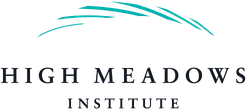What a difference a year can make. When HMI finished a survey on the current state of play of ESG integration in global capital markets last spring, it seemed clear that the incentive systems needed to drive true environmental, social and governance (ESG) integration in mainstream capital markets, particularly in the US, were a long way off. While the efforts of UNPRI, SASB and the many other SRI programs are to be noted, our research showed that in reality these initiatives alone are insufficient to drive significant change for most mainstream asset owners and managers.
As we start 2016, there are encouraging signs that some of the fundamental structural changes needed to drive true ESG integration in capital markets are starting to be put in place in the US and globally.
ESG consideration as a legitimate part of fiduciary duty
A common refrain among investment managers in the US is that integrating ESG factors into their valuation models could be seen as going against their fiduciary duty and the guidelines set out by the Employee Retirement Income Security Act (ERISA). These guidelines stated fiduciaries should not make investment decisions based on “any factor outside the economic interest of the plan.” In October 2015, however, the Department of Labor issued a new interpretation, noting its 2008 bulletin had “unduly discouraged fiduciaries from considering ETIs and ESG factors.” It specifically clarified that ESG issues may have a direct relationship to the economic value of a plan’s investment and are proper components of the fiduciary’s primary analysis of the economic merits of competing investment choices.
A broader interpretation of professional standards to include systemic responsibility
The CFA Institute is the major professional accreditation agency for the financial sector in the United States, and its standards have considerable impact for the industry. In 2015, the CFA Institute made a significant change to its Code of Ethics & Standards of Professional Conduct, replacing the standard’s language from “promote the integrity of and uphold the rules governing capital markets” to “promote the integrity and viability of the global capital markets for the ultimate benefit of society.”
Comprehensive ESG ratings from mainstream information providers
In August 2015, Morningstar, a leading independent investment research firm, announced plans to launch the industry’s first ESG scores for global mutual and exchange-traded funds. Another major provider, MSCI, has announced a similar plan more recently.
Global standards for climate change-related risk
The Financial Stability Board (FSB) has established an industry-led task force to develop voluntary, consistent climate-related financial risk disclosures for use by companies in providing information to lenders, insurers, and investors. As the FSB notes, “Access to high quality financial information will allow market participants and policymakers to understand and better manage those risks, which are likely to grow with time.” The task force is chaired by Michael Bloomberg.
Movement by US mainstream financial groups to support long-termism
According to the Financial Times, the world’s largest asset managers have been holding secret meetings “to hammer out proposals for improving public company governance to encourage longer- term investment and reduce friction with shareholders… Discussions have focused on issues such as the role of board directors, executive compensation, board tenure and shareholder rights, all of which have been flashpoints at US annual meetings.”
At HMI, we are working with ESG staff, analysts, and portfolio managers from key capital market firms to explore how these larger structural changes can support the development of practical frameworks for integrating ESG into the valuation models and investment strategies of mainstream financial managers. Stay tuned for reports on our progress.
